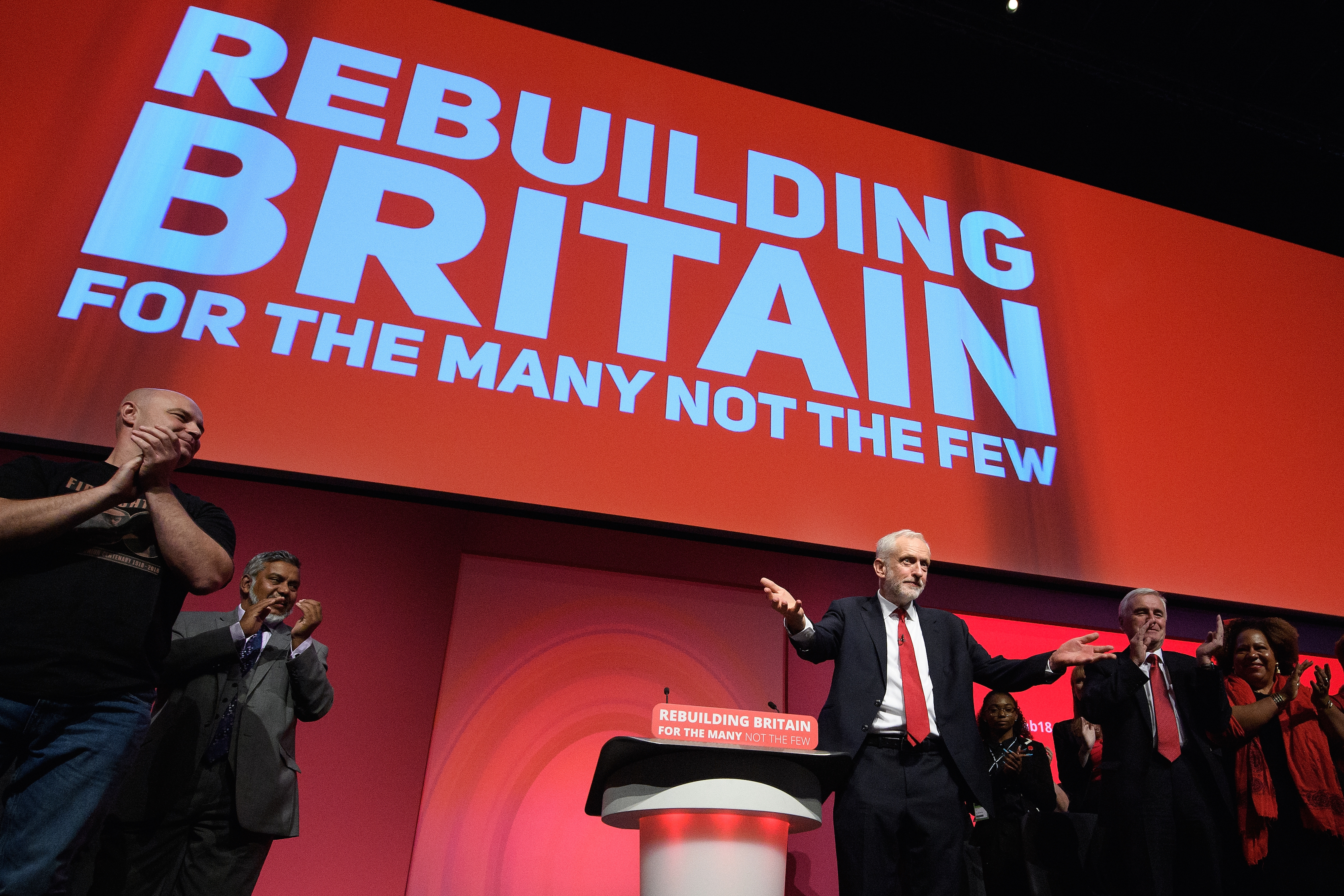
- Select a language for the TTS:
- UK English Female
- UK English Male
- US English Female
- US English Male
- Australian Female
- Australian Male
- Language selected: (auto detect) - EN
Play all audios:
Writing about Jeremy Corbyn’s Labour Party isn’t, I’m afraid to say, as easy as it used to be. Malleable though the English language is, it contains only a limited number of words that
convey total moral and intellectual collapse. Writers, increasingly, are being forced to earn their pay. Even by its own grim standards the Labour Party outdid itself last week. Its party
conference saw an orchestrated attempt to remove deputy leader Tom Watson, one of the few obstacles to total Corbynite hegemony, whilst apologists for anti-Semitism gathered at fringe
events. Most interesting though, was the publication of a new YouGov poll of Labour members, commissioned to mark the launch of Ian Austin MP’s new anti-extremism group ‘Mainstream’. The
survey, even for those of us who have been following Labour’s march to the radical left for years, was shocking. It demonstrated just how far, not just the Labour leadership, but a good
proportion of its grassroots, have moved from the basic liberal-democratic principles that used to define the party. Out of a sample of 1,185 Labour members, 69 per cent agreed that it would
be “legitimate” for “trade unions to hold a general strike to try and remove a Conservative Government”. Only 18 per cent said it would not be legitimate. That a significant majority of
Labour members back removing a democratically elected Government, not by the ballot box, but via the collective action of organisations representing a small minority of the population, is
extraordinary. To seize power using extra-parliamentary means, in a democratic society, is nothing short of a coup. It’s particularly ironic given the Labour leadership is currently opposing
the Government’s bids to trigger a general election, an opportunity for them to take power peacefully. Labour members, if they back Corbyn’s position on an election, are in the troubling
position of backing strike action to remove the Johnson administration but not a public poll. Sadly, this is just the beginning of the survey’s troubling findings. The Labour Party may be
under formal EHRC investigation over allegations of institutionalised racism, only the second party after the BNP to collect the dubious honour, but only 23 per cent of its members think it
has “a serious problem” with anti-Semitism. An overwhelming 66 per cent disagree, despite even the leadership being forced to concede it’s a major issue. The biggest group of members, some
37 per cent, blame anti-Semitism accusations primarily on “political opponents who want to undermine Jeremy Corbyn”. This level of racism denial has surely not been seen in mainstream
British politics since the 1970s. The attitudes of Labour members to Israel, the world’s only Jewish majority state, are bizarre to say the least. According to the survey 56 per cent
believe the UK “should not” seek a trade deal with Israel if Brexit takes place, with just 31 per cent disagreeing. Of all the countries surveyed, Israel is the only one Labour members
oppose a trade agreement with. By contrast 62 per cent would support a trade deal with China, an authoritarian dictatorship that is currently holding as many as one million Uighur Muslims in
internment camps, with only 22 per cent opposed. The Corbynites regard Israel, one of the only functioning democracies in the Middle East, as beyond the pale, while other states receive
merely indifference when they implement oppression on an industrial scale. Corbynism has always been a deeply authoritarian movement and this is starkly confirmed by the attitudes of
Labour members towards the media. Some 51 per cent want a Labour Government to take “greater control of broadcast media” with only 40 per cent opposed. A whopping 79 per cent would also like
to see a future Labour administration “passing new laws limiting who can own national newspapers”. Both of these are somewhat vague, but clearly form the basis for the chipping away of
press freedom. It’s worth remembering that democracies are rarely terminated overnight, but rather eroded from within by their rivals, until little more than a shell remains. The polls most
shocking finding, at least to me, was the attitude of Labour members to terrorist violence. When asked who was primarily responsible for the violence in Northern Ireland “between the late
1960s and early 1990s” the biggest group of Labour members, some 32 per cent, blamed the “British government and army”. Just 27 per cent thought the IRA and other republican terrorist groups
were most to blame. Considering the British Government was resisting an attempt to force Northern Ireland out of the United Kingdom, against the wishes of the majority of its population,
via armed force this is quite extraordinary. Indeed, it’s worth remembering British troops were initially deployed to the province by Harold Wilson’s Labour Government in 1969 to protect
Catholic neighbourhoods from loyalist mob violence. In a similar vein, only a minority of Labour members said “terrorist groups like Al Qaeda and ISIS” were most to blame for the wave of
Islamist terror attacks that has hit the UK in recent years. Some 40 per cent thought the terror gangs and “the foreign policies of the British Government and western allies” were equally
responsible, while some 28 per cent thought the terror groups were less responsible than the UK Government. At best this reveals a terrifying nativity about the ideology of ISIS and what it
hopes to achieve, at worst its victim-blaming on a colossal scale. Should Labour form a Government in the near future, as remains very possible, the views of its members will matter an
awful lot. Far from constraining the Corbynites worst excesses, it seems the grassroots will reflect and embolden them, while undermining those ‘moderate’ Labour MPs who have yet to quit the
party. The Labour Party has been taken over from top to bottom by the extreme left, a faction that has never held power in this country. It would surely be better for all of us if we don’t
learn first hand just how much we gained from Britain’s historic moderation.








